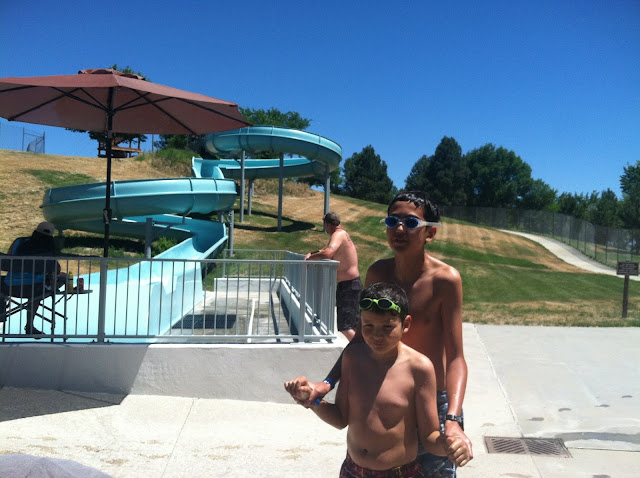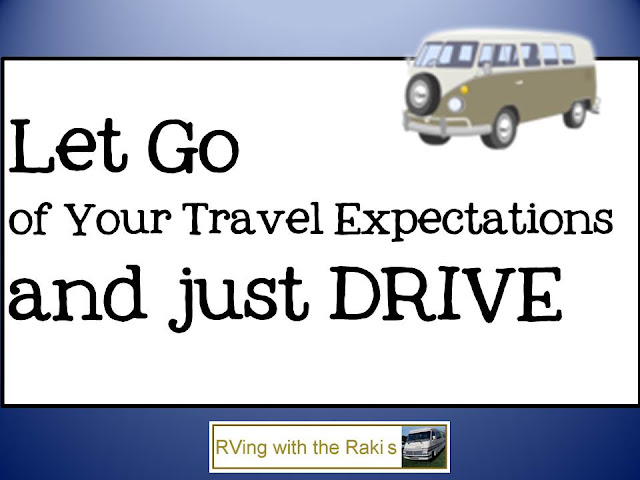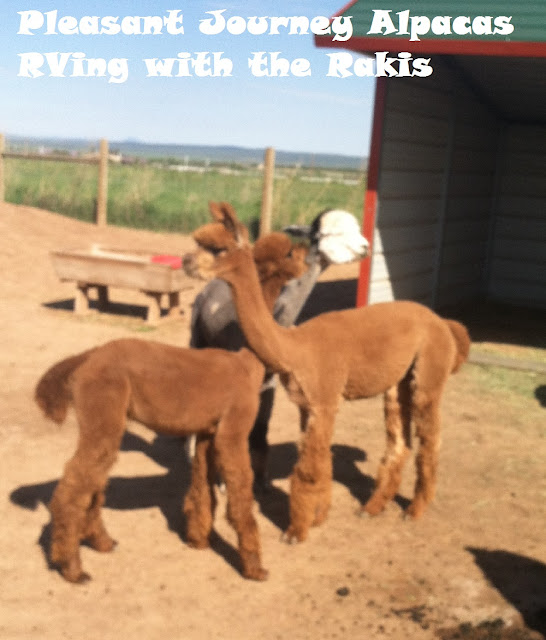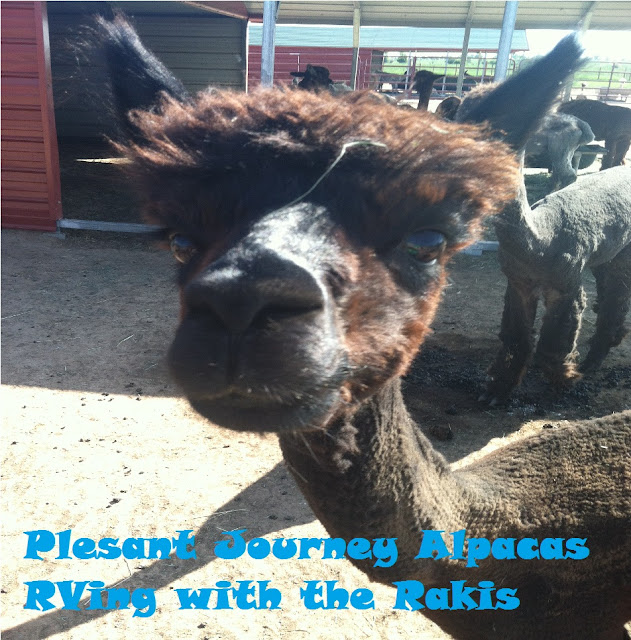When we first started planning this summer's trip, it didn't occur to me that we'd have so many questions about how we could afford such a trip. In the past few years of surrounding myself with people who travel regularly, I had forgotten that most people, especially most Americans, don't travel more than one or two weeks a year. It's amazing how fast we can get into our own little bubble and forget how others live. When we owned a house, we were like that, only traveling a week or two a year, maybe more if you add in weekend trips throughout the year. But we've traveled so much in the past two years that I've gotten into the idea that this is "normal".
So when I started getting the question "How can you afford to travel for 9 weeks?", it caught me off guard. Then I realized that course many people that I know want to travel more, but the big concern is always money because we've gotten into this idea that travel is too expensive. Personally, I feel that the money spent on travel is so important that it's just a good investment in my life and the education of my children.
When we were doing fulltime travel, I wrote a post that became the page - Affording Fulltime Travel. While this page is still pertinent, this trip was a little different because we have "settled down" for awhile before hitting the road. And because we'll be going back to a more "settled" lifestyle after this trip, it is classified more as a vacation than a part of the traveling lifestyle.
So today I will attempt to answer the question "How do you afford a 9 week vacation?" in 5 simple steps.
Step 1: Live cheap - Part of the reason we can afford this trip is because we are used to living cheap. When we are "settled" we have very few bills. Because we live in our RV, we stay at a campground and pay a monthly fee that is already cheaper than most monthly rent or mortgage payments. (We pay $500 - $600 a month on monthly rent depending on the campground.) Additionally, this includes our water, electric, sewer and trash pick up, so we have no real utility bills except for a cell phone/internet bill, which we would have if we were in a house or apartment anyways. We also cook 2 - 3 meals a day and buy in bulk as much as possible. (See my previous blog post on how we store a month's worth of groceries in our 30 foot RV.)
We bought both of our cars and our rv cheap and with cash, ($2k for each car and $4k for the RV) so we don't have any vehicle payments, but we do have insurance. One thing that has been really helpful with insurance is to pay it in advance for six months or a year. Not only do you get a discount when you pay this way, you also have on less bill due out if a month is particularly low on money because of a dip in income or an unexpected expense.
Step 2: Save up a nest egg - Because we live so cheap, we have money left most months which could easily be used for eating out or other recreation. However we have allotted this "additional" money for two purposes. First we are working on paying down our student loans. Second we save for travel. These are our family's priorities to be debt free and to travel as much as humanly possible. :)
This savings left us with a considerable nest egg for this trip that we have actually only had to dip into it twice. However, knowing the nest egg is there makes it easier to plan a trip without stressing out about things like "What if the RV breaks down?" or "What if someone gets sick?" and from time to time it lets us splurge or conquer an unexpected expense.
Step 3: Get rid of as many "at home expenses" as you can while you're traveling - While we are settled we pay $500 to $600 a month for "rent" and the boys take karate which is another $200 a month. Because we don't own or rent with a lease, these are expenses we DO NOT have while we are traveling. This is a major part of our reasoning to continue to live in our RV when we are settled. By not having those bills at home, we have $800 per month that we can use on gas and overnight stays during our trip. If we even rented an apartment, we would still have to pay rent and utilities while we were traveling, so the traveling would be additional. This way the traveling is included in our every day budget.
Step 4: Travel cheap - If we were to stay at a high end campground every night for 9 weeks, we would spend much more than the $800 per month. Most campgrounds with hook ups range from $25 - 40 a night and while you can get a weekly rate, it's still not going to be nearly as cheap as if you were staying somewhere for a month at a time. So we don't always stay in campgrounds. Actually we rarely stay in what most people think of as a "real campground." Instead, we do a variety of:
- Bureau of Land Management (BLM) campgrounds [no hook ups or limited hook ups for about $10 - $15 per night]
- Dispersed camping in National Forests [no hook ups or facilities for FREE as long as you are at least 10 miles from any organized campground and no more than 5 miles from the road]
- Parking lots of Walmart, Cabelas, casinos and truck stops [no hook ups, but free and legal in most areas] There are some areas of Idaho, Oregon and California, as well as many big cities that DO NOT allow this, so be careful and do your research first. It's not fun to be woken up at 2a.m. and asked to move, or worse to recieve a $200 ticket.
- Harvest Hosts [After the $50 membership fee, you can park at the associated farms and wineries for FREE as long as you buy something from the farm or winery. No hook ups at most places, but these are often a place that I would pay to go anyways and they're a great way to keep the boys knowledgeable about where their food comes from.]
When we do stay in a "regular campground" we often opt for a water and electric site, which is cheaper than a full hook up site, and then we use the dump station on our way out. We also have a Good Sam's Club membership and an Escapees membership, both of which give us discounts on these campgrounds. Plus, we have spent money to add specific things to our RV that makes it easier to be away from "regular campgrounds". Specifically for this trip we added a solar panel, 2 additional batteries and an inverter which has allowed us to have enough electricity to charge our laptops, watch television or run basic kitchen appliances. We also added a simple composting toilet that decreases the need to find a dump station. When we do need to find a dump station, most campgrounds will let you come in and dump for about $10.
In addition to choosing cheap accomodations, we tend to choose cheap attractions. We aren't drawn to the amusement parks and tourist traps anyways, so we visit National Parks, State Parks, Monuments and museums along the way. On this trip alone, the boys have gotten 15 Jr. Ranger badges and visited 4 science museums. For the National Parks, we currently have a 4th Grader "Every Kid in a Park" Pass, but would definitely pay the $80 for an annual pass if we didn't qualify for this. For the science museums, we have purchased an ASTC annual pass membership from the Western North Carolina Nature Center for $70.
And of course the other big expense when traveling is food. For this expense, we cook ... a lot. :) Seriously traveling with an RV is great for this because I can cook breakfast, lunch and dinner if needed as we carry a regular household's food supply. When we leave the RV to do a day trip, we pack sandwiches, snacks and water.
Of course this is not to say that we never splurge. We've paid for waterslide rides and carnivals this trip. We've gone out for a few meals and visited a few "tourist traps". However, by traveling cheap most of the time, we have money to splurge sometimes.
Step 5: Work on the Road - During this trip, we've had a little bit more money because I am still getting paid from my teaching job. This is of course money I already worked for and earned, but that the school holds and pays out over the summer to help teachers budget better.
However, in addition to this, I am still making money from my teacher resource business: Raki's Rad Resources and my husband is making money from his language resource business: Raki's Rad Language Resources. Making this money means that even while we're traveling, we are still taking time to work. It's flexible time that we can fit in around our travel plans, but it's still work time. In fact I am writing this blog post while my husband drives us to our next destination.

Occasionally we have to rearrange vacation plans to work. For example, the other day, my husband recieved a large order for his Arabic Letter Stencils that needed to be shipped right away. Instead of going exploring one morning, we stayed put and gave him a few hours to put them together. Once they were put together, we pushed on and still had a lovely family day, arriving at Gnekow Family Winery and having plenty of time to explore the surrounding area.
So that's my answer to how we have afforded this vacation: live cheap, travel cheap and work along the way. Doesn't sound fun or sexy, huh? But when you look at all we've seen and done, it's totally worth it. Here are just a few pictures of where we've been over the past 6 weeks:
Mesa Verde, CO
Lake Powell, AZ
Bryce Canyon, UT
Salt Lake City, UT
Twin Falls, ID
Boise, ID
Hood River, OR
Florence, OR
Shasta Lake, CA
Lake Tahoe, CA
Sacramento, CA
San Francisco, CA
So when I started getting the question "How can you afford to travel for 9 weeks?", it caught me off guard. Then I realized that course many people that I know want to travel more, but the big concern is always money because we've gotten into this idea that travel is too expensive. Personally, I feel that the money spent on travel is so important that it's just a good investment in my life and the education of my children.
When we were doing fulltime travel, I wrote a post that became the page - Affording Fulltime Travel. While this page is still pertinent, this trip was a little different because we have "settled down" for awhile before hitting the road. And because we'll be going back to a more "settled" lifestyle after this trip, it is classified more as a vacation than a part of the traveling lifestyle.
So today I will attempt to answer the question "How do you afford a 9 week vacation?" in 5 simple steps.
Step 1: Live cheap - Part of the reason we can afford this trip is because we are used to living cheap. When we are "settled" we have very few bills. Because we live in our RV, we stay at a campground and pay a monthly fee that is already cheaper than most monthly rent or mortgage payments. (We pay $500 - $600 a month on monthly rent depending on the campground.) Additionally, this includes our water, electric, sewer and trash pick up, so we have no real utility bills except for a cell phone/internet bill, which we would have if we were in a house or apartment anyways. We also cook 2 - 3 meals a day and buy in bulk as much as possible. (See my previous blog post on how we store a month's worth of groceries in our 30 foot RV.)
We bought both of our cars and our rv cheap and with cash, ($2k for each car and $4k for the RV) so we don't have any vehicle payments, but we do have insurance. One thing that has been really helpful with insurance is to pay it in advance for six months or a year. Not only do you get a discount when you pay this way, you also have on less bill due out if a month is particularly low on money because of a dip in income or an unexpected expense.
Step 2: Save up a nest egg - Because we live so cheap, we have money left most months which could easily be used for eating out or other recreation. However we have allotted this "additional" money for two purposes. First we are working on paying down our student loans. Second we save for travel. These are our family's priorities to be debt free and to travel as much as humanly possible. :)
This savings left us with a considerable nest egg for this trip that we have actually only had to dip into it twice. However, knowing the nest egg is there makes it easier to plan a trip without stressing out about things like "What if the RV breaks down?" or "What if someone gets sick?" and from time to time it lets us splurge or conquer an unexpected expense.
Step 3: Get rid of as many "at home expenses" as you can while you're traveling - While we are settled we pay $500 to $600 a month for "rent" and the boys take karate which is another $200 a month. Because we don't own or rent with a lease, these are expenses we DO NOT have while we are traveling. This is a major part of our reasoning to continue to live in our RV when we are settled. By not having those bills at home, we have $800 per month that we can use on gas and overnight stays during our trip. If we even rented an apartment, we would still have to pay rent and utilities while we were traveling, so the traveling would be additional. This way the traveling is included in our every day budget.
Step 4: Travel cheap - If we were to stay at a high end campground every night for 9 weeks, we would spend much more than the $800 per month. Most campgrounds with hook ups range from $25 - 40 a night and while you can get a weekly rate, it's still not going to be nearly as cheap as if you were staying somewhere for a month at a time. So we don't always stay in campgrounds. Actually we rarely stay in what most people think of as a "real campground." Instead, we do a variety of:
- Bureau of Land Management (BLM) campgrounds [no hook ups or limited hook ups for about $10 - $15 per night]
- Dispersed camping in National Forests [no hook ups or facilities for FREE as long as you are at least 10 miles from any organized campground and no more than 5 miles from the road]
- Parking lots of Walmart, Cabelas, casinos and truck stops [no hook ups, but free and legal in most areas] There are some areas of Idaho, Oregon and California, as well as many big cities that DO NOT allow this, so be careful and do your research first. It's not fun to be woken up at 2a.m. and asked to move, or worse to recieve a $200 ticket.
- Harvest Hosts [After the $50 membership fee, you can park at the associated farms and wineries for FREE as long as you buy something from the farm or winery. No hook ups at most places, but these are often a place that I would pay to go anyways and they're a great way to keep the boys knowledgeable about where their food comes from.]
When we do stay in a "regular campground" we often opt for a water and electric site, which is cheaper than a full hook up site, and then we use the dump station on our way out. We also have a Good Sam's Club membership and an Escapees membership, both of which give us discounts on these campgrounds. Plus, we have spent money to add specific things to our RV that makes it easier to be away from "regular campgrounds". Specifically for this trip we added a solar panel, 2 additional batteries and an inverter which has allowed us to have enough electricity to charge our laptops, watch television or run basic kitchen appliances. We also added a simple composting toilet that decreases the need to find a dump station. When we do need to find a dump station, most campgrounds will let you come in and dump for about $10.
In addition to choosing cheap accomodations, we tend to choose cheap attractions. We aren't drawn to the amusement parks and tourist traps anyways, so we visit National Parks, State Parks, Monuments and museums along the way. On this trip alone, the boys have gotten 15 Jr. Ranger badges and visited 4 science museums. For the National Parks, we currently have a 4th Grader "Every Kid in a Park" Pass, but would definitely pay the $80 for an annual pass if we didn't qualify for this. For the science museums, we have purchased an ASTC annual pass membership from the Western North Carolina Nature Center for $70.
And of course the other big expense when traveling is food. For this expense, we cook ... a lot. :) Seriously traveling with an RV is great for this because I can cook breakfast, lunch and dinner if needed as we carry a regular household's food supply. When we leave the RV to do a day trip, we pack sandwiches, snacks and water.
Of course this is not to say that we never splurge. We've paid for waterslide rides and carnivals this trip. We've gone out for a few meals and visited a few "tourist traps". However, by traveling cheap most of the time, we have money to splurge sometimes.
Step 5: Work on the Road - During this trip, we've had a little bit more money because I am still getting paid from my teaching job. This is of course money I already worked for and earned, but that the school holds and pays out over the summer to help teachers budget better.
However, in addition to this, I am still making money from my teacher resource business: Raki's Rad Resources and my husband is making money from his language resource business: Raki's Rad Language Resources. Making this money means that even while we're traveling, we are still taking time to work. It's flexible time that we can fit in around our travel plans, but it's still work time. In fact I am writing this blog post while my husband drives us to our next destination.

Occasionally we have to rearrange vacation plans to work. For example, the other day, my husband recieved a large order for his Arabic Letter Stencils that needed to be shipped right away. Instead of going exploring one morning, we stayed put and gave him a few hours to put them together. Once they were put together, we pushed on and still had a lovely family day, arriving at Gnekow Family Winery and having plenty of time to explore the surrounding area.
So that's my answer to how we have afforded this vacation: live cheap, travel cheap and work along the way. Doesn't sound fun or sexy, huh? But when you look at all we've seen and done, it's totally worth it. Here are just a few pictures of where we've been over the past 6 weeks:
Mesa Verde, CO
Lake Powell, AZ
Bryce Canyon, UT
Salt Lake City, UT
Twin Falls, ID
Boise, ID
Hood River, OR
Florence, OR
Shasta Lake, CA
Lake Tahoe, CA
Sacramento, CA
San Francisco, CA



























